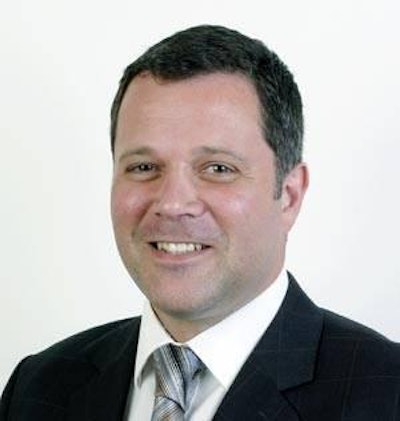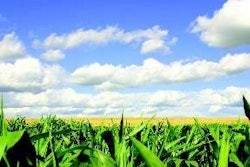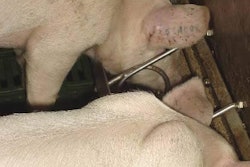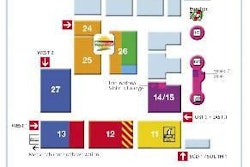
Present British monarch, Queen Elizabeth II, described 1992 as her ‘annus horriblis' (Latin: bad year). Bernard Matthews once regarded as king of the British poultry industry recently told local newspaper Eastern Daily Press that the past year or so was its own annus horriblis - the worst it could remember, hit by the ‘triple whammy' of allegations about unhealthy eating products, a court conviction for animal cruelty and avian influenza (AI).
Three times bad news
The company was first slated by United Kingdom celebrity chef, Jamie Oliver, for ‘nutritional cruelty' to its customers. The company's Turkey Twizzlers, he claimed, represented ‘unhealthy eating' despite being popular with children, both at home and at school canteens.
Bernard Matthews then hit the news again when two employees of their catching gang sub-contractor were filmed ‘playing baseball' with live turkeys. The two men were dismissed and successfully prosecuted for animal cruelty by the UK's welfare organisation, Royal Society for the Prevention of Cruelty to Animals (RSPCA).
Finally, Bernard Matthews took a big hit from highly pathogenic avian influenza (HPAI) at the beginning of this year. In order to contain and eradicate the virus, it culled 160,000 turkeys at its Holton farm in Suffolk, East Anglia. The source of the H5N1 strain of the HPAI virus may never be determined. A number of plausible explanations were highlighted in the final report from the UK's Department of Food and Rural Affairs (DEFRA). Source may have been from Hungary via the company's poultry operations there or spread by the migration of wild birds.
AI's savage impact on sales
UK turkey sales fell by one-third literally overnight and Bernard Matthews brand products apparently more. Marketing gurus think that the fast, furious and long lasting fall was UK consumers' sudden realisation that not all Bernard Matthews' poultry products were home-grown.
Learning from this experience, the company is now going back to its British roots, seeing this as the way of recouping lost markets. Meanwhile, the wettest British summer on record has hit sales while rising livestock feed prices, exacerbated by flooded cereal fields across the country, significantly increased the costs of raising home-grown turkeys. Wheat is the basis of poultry feeds in the UK.
Return to its roots
In an interview, Bernard Matthews said that it is keen to re-emphasise its East Anglia roots and is now working to ensure that all products sold under its own brand come from British turkeys. "The importance of being British was something we had underestimated," stated Bernard Matthews' marketing director, Matthew Pullen. "Being British doesn't give you a licence to charge more but it does cost more to produce.
"We are now in the process of moving production of all lines back to the UK. In reality, few of our Bernard Matthews products were actually Hungarian. Already more than 90% of them come from East Anglia turkeys and we are working to raise that to 100%. We have always been proud to be a British producer. What consumers have to realise is that it costs more to produce turkeys in this country than in Brazil or Thailand," he explained.
Restoring customers' faith
Mr Pullen says that the company is looking to expand the product ranges, give customers more information about origin of the product, and it will focus on free-range and organic production.
Investment in British production will only work if the company can restore customer faith in turkey as a product. The AI outbreak made British consumers switch away from turkey products although they are returning. Bernard Matthews is doing its best to encourage the trend. It recently launched a new television advertising campaign, ‘Turkey for today', which emphasises the versatility of turkey meat. "Turkey is a low-fat product, which is incredibly versatile," claimed Mr Pullen. "It still only takes a small share of the market, meaning there is much room for growth."
Storm clouds on horizon?
Bernard Matthews is upbeat about the future but there are things on the horizon set to affect everyone in the industry, and these are largely out of company control. Price of grain has almost doubled over the last few months due to poor harvests in major grain-producing regions including Canada and Europe. Each year, the company purchases a massive 150,000 tonnes of grain to feed poultry on its farms across East Anglia, and it may not be able to avoid all of the anticipated price rises. The company says it is insulated against some of the rises through forward purchases but this will not cover all requirements. "Feed price is a real problem," said Mr Pullen. "We can't just absorb it so, like all poultry producers, we may have to recover it by raising prices."
Other companies in the sector have also been hit hard by the rising price of wheat. East Anglia-based Manor Farm Ducklings ran into financial difficulties due to increasing feed prices. It was bought out of administration in July 2007 by rival duck producer, Gressingham Foods. Industry watchers are forecasting a rise in prices for UK consumers if they continue to access high quality home-grown meat.
Looking to the future
Some redundancies followed the AI outbreak but the company still employs 3500 workers in the UK. Recruitment of production workers is under way in the run-up to Christmas but the company is keeping tight control on costs with a staff pay freeze. UK consumers will almost certainly have to pay more for fresh turkeys at Christmas.
Bernard Matthews believes its robust strategies will ensure its future. While sales of cooked meats have been depressed by external factors such as the bad weather, other divisions, including food service, are making strong recoveries and recapturing market share. "We're on the way back and there are now huge opportunities for us in all our markets," Mr Pullen told Poultry International. "We believe we have both the expertise and the dynamism to realise our potential."


















